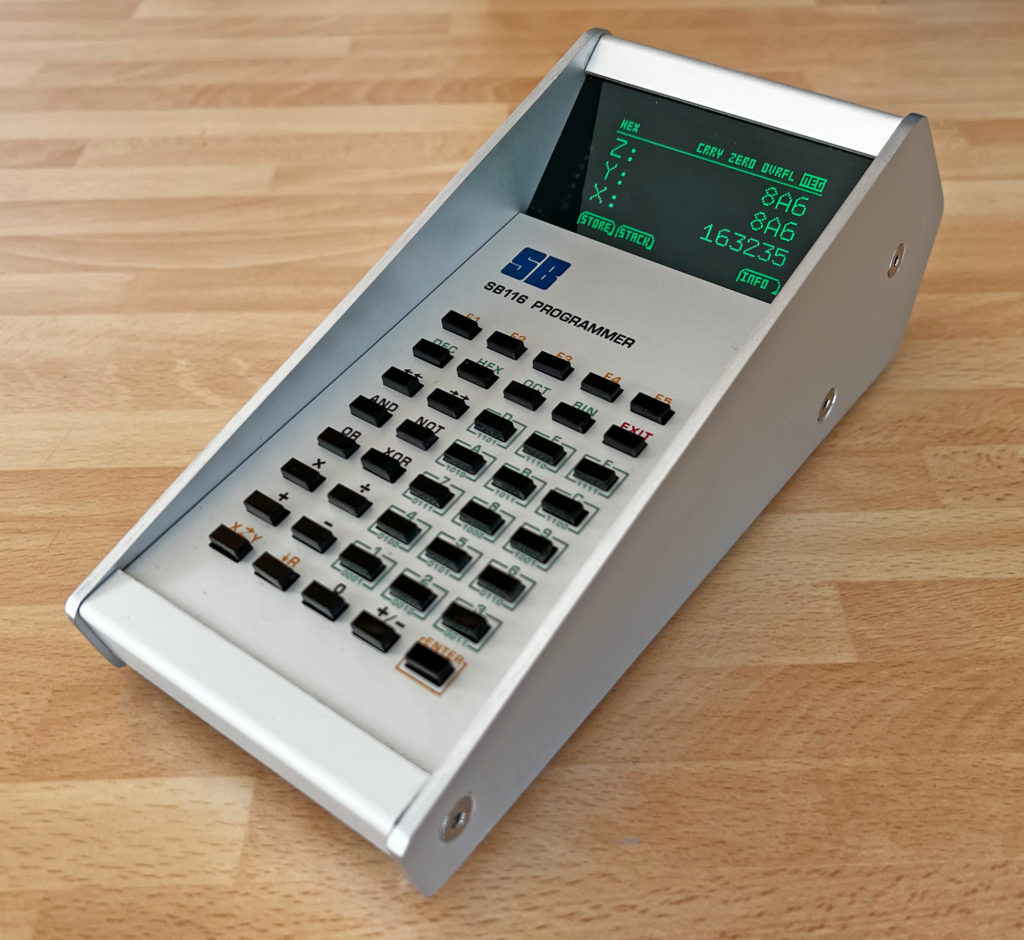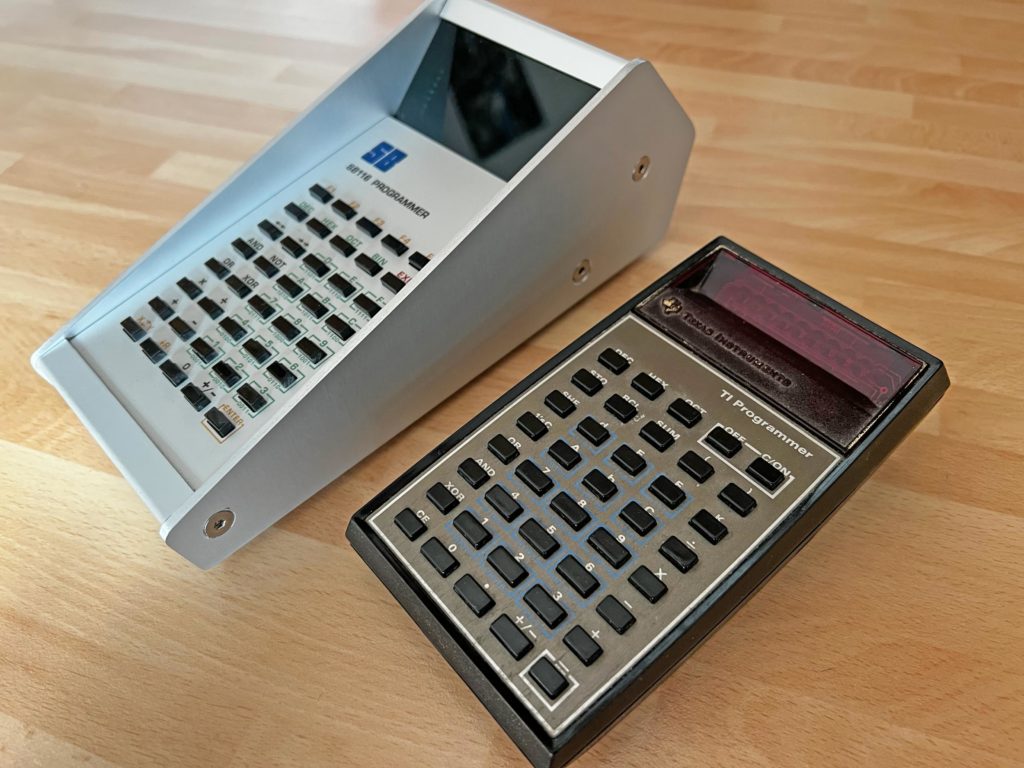
Many types of calculators exist beyond those basic models that everyone used in elementary school. The most common is the scientific calculator, including the iconic Texas Instruments TI-83. Programmer’s calculators contain buttons and functionality designed to help with coding, with the ability to work in binary, hexadecimal, and other base systems and to perform logic operations like XOR and AND. Simon Boak had a 45-year-old TI Programmer that was becoming unreliable, so he built his own 16-bit integer Reverse Polish notation (RPN) calculator with an Arduino.
Boak’s SB116 programmer’s calculator very closely mimics both the button layout and functionality of that old TI calculator. The most visible difference is that the SB116 has a modern SSD139 driver-based 2.42” OLED display with a resolution of 128×64, in contrast to the vintage TI’s retro bubble LED screen. The keypad looks almost identical to the original, with the only other major external aesthetic difference being the gorgeous custom aluminum enclosure that Boak constructed. To add to the aesthetic, Boak even made a matching retail box that looks absolutely fantastic.

The hardware components for this calculator are minimal, as the Arduino can easily handle all of the processing involved. That is a Nano, which connects to the OLED screen and a custom keypad PCB that contains 40 rubber dome buttons. The user can switch the power supply between a USB port or a set of three AAA batteries. Boak’s Arduino sketches handle all of the complex functionality of the calculator and even store selections when the calculator powers off, as well as the register storage that one would expect from a programmer’s calculator.
The post Simon Boak’s SB116 is a TI Programmer-inspired DIY calculator appeared first on Arduino Blog.
No comments:
Post a Comment